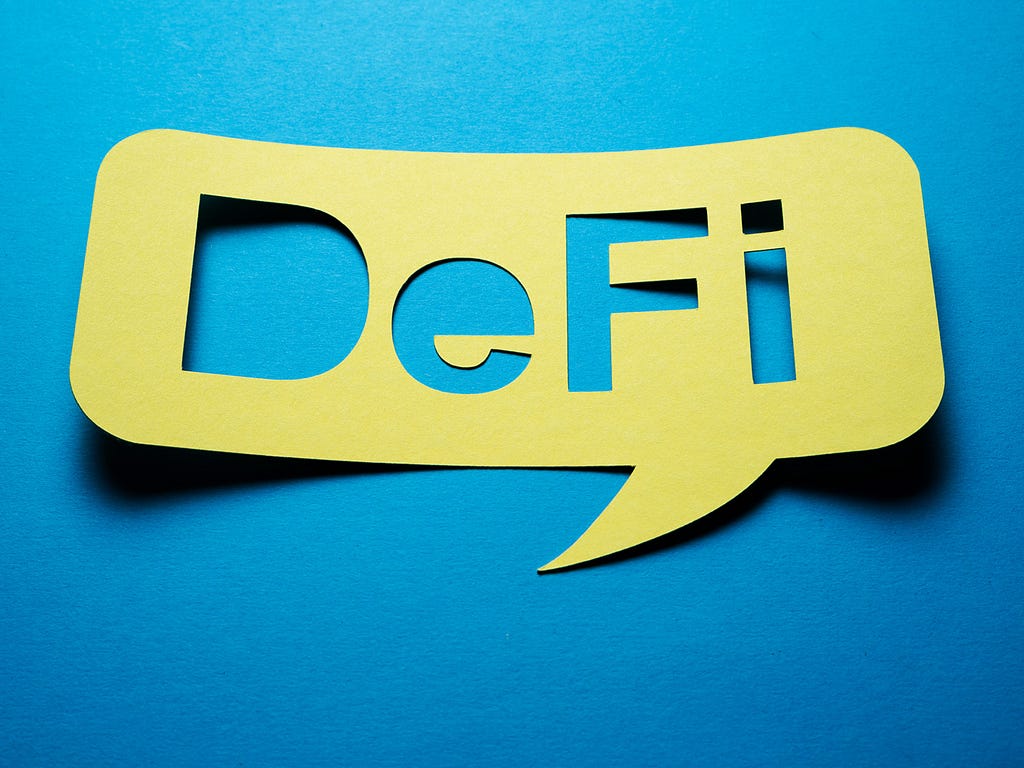
Decentralized Finance (DeFi) has emerged as a pivotal force in reshaping the global financial landscape. As we step into 2024, the DeFi ecosystem continues to expand, offering innovative solutions that challenge traditional financial systems. This blog explores the current state of DeFi, its impact on global finance, and what businesses and potential clients can expect from this evolving sector.
Understanding Decentralized Finance
Decentralized Finance, commonly referred to as DeFi, encompasses a variety of financial services that operate on blockchain networks. This innovative approach allows users to engage in transactions without relying on traditional intermediaries like banks or brokers. Instead, DeFi leverages secure distributed ledgers to facilitate peer-to-peer transactions between individuals or entities, thereby eliminating the need for centralized authority.
At its core, DeFi aims to democratize access to financial services by removing barriers that have historically limited participation. Unlike centralized financial institutions, which often impose fees and dictate terms for their services, DeFi platforms offer an open-access model. Anyone with an internet connection can utilize these services, allowing individuals to maintain custody of their assets through encrypted digital wallets. This shift not only empowers users but also fosters a more inclusive financial environment.
The decentralized nature of DeFi means that individuals retain control over their financial assets, managing them directly through cryptographic keys. This autonomy contrasts sharply with traditional banking systems where customers must trust intermediaries to safeguard their funds and manage transactions. By utilizing blockchain technology, DeFi provides a transparent and secure alternative for conducting financial activities.
The Growth of DeFi
The DeFi market has seen remarkable growth, projected to increase from $21.21 billion in 2023 to $30.17 billion in 2024, representing a compound annual growth rate (CAGR) of 42.2%. This expansion is driven by several factors that collectively contribute to the burgeoning popularity of decentralized finance.
One significant factor is the increased adoption of cryptocurrencies. As more individuals and institutions embrace digital currencies, the demand for decentralized financial services continues to rise. Major corporations and investment firms are integrating crypto assets into their portfolios, recognizing the potential for high returns and diversification beyond traditional asset classes.
Another driving force behind this growth is the emergence of yield farming and liquidity mining. These practices incentivize users to provide liquidity to DeFi protocols, enhancing their functionality and appeal. Yield farming allows users to earn rewards by staking or lending their assets, while liquidity mining provides incentives for users who contribute liquidity to decentralized exchanges. These mechanisms not only attract new users but also create a vibrant ecosystem where participants can earn passive income on their holdings.
Global accessibility is another critical aspect of DeFi’s growth trajectory. Unlike traditional financial systems that often impose geographical barriers and stringent requirements for account opening, DeFi platforms are accessible to anyone with an internet connection. This inclusivity is particularly beneficial for individuals in developing regions who may lack access to conventional banking infrastructure. By providing essential financial services without the need for intermediaries, DeFi empowers millions who have previously been excluded from the global economy.
Additionally, the tokenization of assets has opened new avenues for investment within the DeFi space. By representing real-world assets — such as real estate or commodities — as digital tokens on a blockchain, DeFi facilitates fractional ownership and broader investment participation. This innovation not only enhances liquidity but also allows smaller investors to access markets that were once reserved for high-net-worth individuals.
Finally, community governance through Decentralized Autonomous Organizations (DAOs) is becoming increasingly influential within the DeFi landscape. DAOs enable members to participate in decision-making processes regarding project development and governance, fostering transparency and inclusivity. This democratic approach ensures that the interests of all stakeholders are considered in the evolution of DeFi projects.
Key Trends Shaping DeFi in 2024
As we look ahead, several trends are expected to shape the DeFi landscape in 2024 significantly. One of the most notable trends is cross-chain integration, which refers to the ability of different blockchain networks to interact seamlessly with one another. This capability enhances liquidity across various platforms and broadens user access to diverse DeFi services. By allowing users to transfer assets effortlessly between different blockchains, cross-chain solutions foster interoperability within the ecosystem and create a more cohesive user experience.
Decentralized exchanges (DEXs) are also gaining traction as they allow users to trade cryptocurrencies without relying on centralized intermediaries. Innovations such as Automated Market Makers (AMMs) have become crucial for providing liquidity and facilitating trades without needing traditional order books or market makers. DEXs empower users by giving them control over their trades while reducing reliance on third parties.
Institutional participation is another trend that is shaping the future of DeFi. More financial institutions are exploring decentralized finance products as they recognize their potential for high yields and efficiency compared to traditional finance options. Institutional investors are increasingly looking at DeFi as a viable alternative for diversifying their portfolios and accessing new revenue streams that were previously unavailable through conventional channels.
As governments around the world begin establishing clearer regulations around cryptocurrency and decentralized finance, regulatory clarity will play a vital role in fostering greater trust among both individuals and institutions. A well-defined regulatory framework can help mitigate risks associated with fraud and market manipulation while promoting responsible innovation within the sector.
Additionally, the integration of non-fungible tokens (NFTs) into DeFi is creating exciting opportunities for users and developers alike. NFTs can be utilized within decentralized finance for collateralization purposes or as unique digital assets that enhance liquidity options within various protocols. By enabling users to leverage their NFTs as collateral for loans or other financial activities, this intersection between NFTs and DeFi opens new avenues for value creation and investment strategies.
Opportunities Presented by DeFi
DeFi offers numerous opportunities for businesses looking to innovate within their financial operations. One significant advantage is cost efficiency; by eliminating intermediaries from transactions, DeFi significantly reduces transaction costs compared to traditional finance models. This reduction in fees is particularly advantageous for cross-border transactions where traditional banking fees can be prohibitively high due to currency conversion costs and international transfer charges.
Moreover, enhanced transparency is a hallmark feature of decentralized finance platforms. All transactions conducted on blockchain networks are recorded publicly on immutable ledgers, increasing accountability while reducing risks associated with fraud or manipulation. The transparent nature of these systems ensures that all participants can verify transactions independently, fostering trust among users.
Accessing global markets becomes more feasible through decentralized finance solutions as businesses can tap into a broader customer base without being constrained by geographical boundaries or local regulations that often limit traditional banking operations. This global reach enables companies to expand their operations more efficiently while attracting clients from diverse markets around the world.
The flexibility inherent in smart contracts allows for creating innovative financial products tailored to meet diverse market needs effectively. From decentralized lending platforms offering personalized loan terms based on user profiles to insurance products utilizing blockchain technology for streamlined claims processing — DeFi presents an array of possibilities that cater specifically to evolving consumer demands.
Perhaps one of the most significant benefits offered by decentralized finance lies in its potential for promoting financial inclusion across various demographics worldwide — especially among those traditionally underserved by conventional banking systems — such as low-income households or individuals living in remote areas lacking access points like bank branches or ATMs capable of facilitating basic transactions.
The Future of DeFi
Looking forward into 2024 and beyond reveals a promising future filled with potential advancements within decentralized finance; however careful navigation will be required through existing challenges faced today by participants operating within this rapidly evolving space . Innovations such as decentralized insurance platforms coupled with advanced risk management tools are expected not only enhance robustness but also broaden appeal amongst mainstream audiences seeking reliable alternatives outside conventional frameworks .
Furthermore , as more users engage actively with these platforms , we anticipate increased development efforts focused on creating user-friendly interfaces designed specifically simplify participation across varying levels expertise . Educational initiatives aimed at demystifying blockchain technology will play an essential role empowering both individuals & businesses alike enabling them confidently navigate complexities associated with using these tools effectively .
The ongoing evolution surrounding technology will undoubtedly shape how we perceive & interact with our finances moving forward . Advances related scalability solutions addressing current limitations regarding transaction speeds & costs will enhance overall user experience across various platforms ensuring accessibility remains paramount regardless demographic background .
Ultimately , fostering awareness surrounding benefits offered via decentralized finance will pave way toward broader adoption across different demographics leading us toward an inclusive ecosystem where everyone has opportunity participate fully regardless prior experience level .
Conclusion
In summary , Decentralized Finance is poised significantly impact global financial systems throughout 2024 & beyond . With emphasis placed upon accessibility , transparency & innovation , it presents unique opportunities available businesses seeking alternative solutions tailored specifically meet evolving needs consumers today. As this sector continues evolve , staying informed about trends developments will prove crucial those looking engage invest within realm possibilities presented here .
For businesses interested exploring potential decentralized finance further or seeking DeFi development services tailored specifically toward their needs , Codezeros offers comprehensive solutions within this exciting field . Connect us today learn how we can assist you navigating landscape filled promise opportunity.








